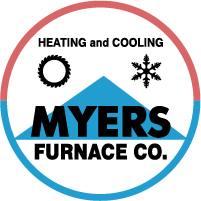
If you’re unsure whether your Belton home has bad indoor air quality (IAQ), it probably does.
We are indoors a lot. In fact, we’re indoors up to 90% of the time, according to the U.S. Environmental Protection Agency. And the air inside residences could be 2–5 times more polluted than outdoors, which could create long-term health issues.
Most Common Sources of Poor IAQ
We’ve put together a list of the most ordinary origins of bad IAQ, the problems they make and how you can fix these indoor air pollutants. If you’re worried about the air inside your house, we recommend consulting with a pro like Myers Furnace Company about which solutions are ideal for your home.
Volatile Organic Compounds
Volatile organic compounds, or VOCs, are vapors leaked by regular household things.
They’re found in paint and stains as well as:
- Furniture
- Carpet
- Building materials
- Cleaning products
- Cosmetics
- Air fresheners
- Candles
When these chemicals accumulate in your home, they may irritate your eyes, nose and throat. They may also lead to headaches and nausea. Regardless of whether your home is in a rural or industrial area, an EPA study found indoor levels of these pollutants can be 2–5 times higher than the air outside your home.
Always use the manufacturer’s directions when painting or cleaning. Cracking a window can help chemicals dissipate faster.
Air purification systems can also better your air. This unit partners with your heating and cooling system to enhance indoor air. When looking for a model, ensure it’s specifically made to eliminate VOCs.
Dust and Pet Dander
Dust and pet dander can aggravate health problems like asthma and allergies, especially when it constantly gets redistributed by your residence’s comfort unit. While you can vacuum more regularly and buy an improved air filter, an air filtration system could be a better match.
This solution hooks to your heating and cooling equipment to deliver mighty filtration. Some models have hospital-level filtration for eliminating particles and bioaerosols.
Lingering Odors
Newer residences are tightly sealed to increase energy efficiency. While this is good for your energy expenses, it’s not very good for your IAQ.
Stale odors can hang around for a greater amount of time because your house is pulling in reduced fresh air. As keeping your windows open all year-round isn’t a possibility, here are two approaches you can make your indoor air smell cleaner.
An air purification system is installed in your HVAC system to wipe out odors before they get released again. Look for one with a carbon filter and the ability to break down dangerous VOCs. This equipment can also help keep your household healthy by getting rid of most bacteria and ordinary allergy triggers like pollen and mold spores.
A ventilation system removes stuffy indoor air and substitutes it with crisp outdoor air. There are two kinds of units (heat recovery and energy recovery), so ask our professionals for more info on which kind is best for your house.
Unbalanced Humidity
It’s essential your home’s humidity remains even. Air that’s too humid can cause mold, while dry air can cause respiratory symptoms.
Our experts suggest 40–50% for the best comfort. To keep yours even, think about getting a whole-home humidifier or whole-home dehumidifier with your heating and cooling unit.
Instead of having to lug a humidifier from room to room, this equipment delivers balanced humidity throughout your house.
Carbon Monoxide
Carbon monoxide is colorless gas you can’t smell. It’s a byproduct of insufficient combustion in fuel-burning equipment, like gas heating systems, water heaters or fireplaces.
It poses a severe health risk. In small levels, it can lead to flu-like sickness like headaches and nausea. It may be deadly in heavy concentrations.
We advise yearly furnace maintenance to ensure your system is running smoothly. This service allows our technicians to find troubles before they begin, including malfunctions that can create carbon monoxide leaks.
The best method to keep your residence free of carbon monoxide is to get detectors. These alarms must be on all floors near bedrooms and living areas.
Improve Your Home’s Air Quality with the Myers Furnace Company Specialists
Know that your home has bad air quality but not sure how to improve it? Or unsure which option is a good fit for you? Give our friendly HVAC pros a call at 816-249-1619 or contact us online today. With free estimates and expert assistance, we’ll help you find the best solution for your family and budget.
